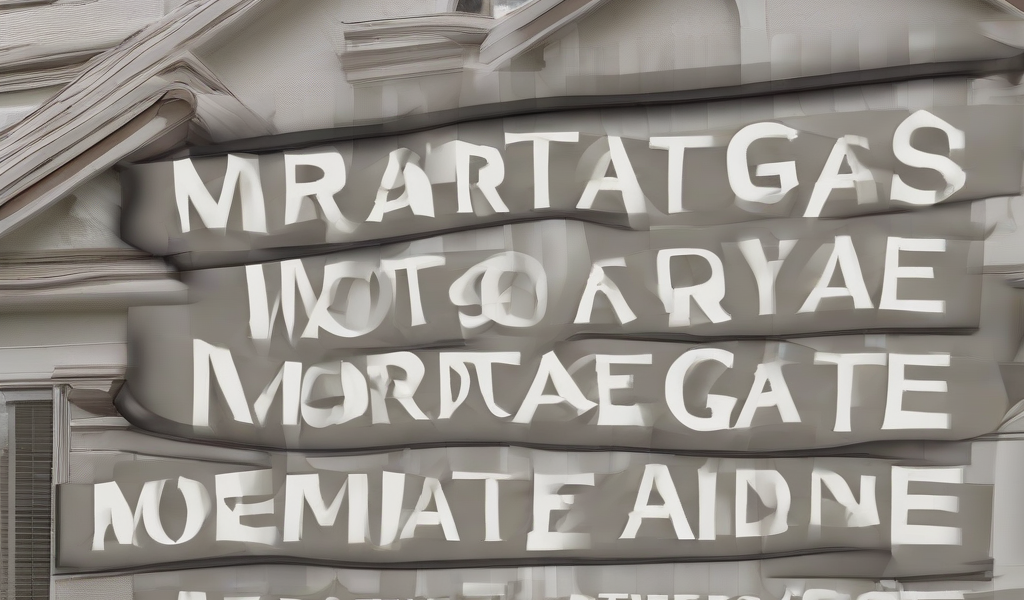Understanding Your Mortgage Rate Quote
Securing a mortgage is a significant financial undertaking, and understanding your mortgage rate quote is paramount. This detailed guide breaks down the intricacies of a mortgage rate quote, explaining the key components and helping you make informed decisions.
What is a Mortgage Rate Quote?
A mortgage rate quote is an estimate of the interest rate a lender is willing to offer you for a mortgage loan. It’s not a formal commitment, but rather a snapshot of the current market conditions and the lender’s assessment of your creditworthiness. It provides a crucial first step in the mortgage process, allowing you to compare offers from different lenders.
Key Components of a Mortgage Rate Quote
- Interest Rate: This is the annual percentage rate (APR) you’ll pay on the loan. It’s expressed as a percentage and determines the cost of borrowing.
- Loan Term: The length of the loan, typically 15 or 30 years. Shorter terms mean higher monthly payments but less interest paid over the life of the loan.
- Loan Amount: The total amount of money you’re borrowing.
- Down Payment: The upfront payment you make towards the purchase price of the property. A larger down payment typically results in a lower interest rate.
- Property Type: The type of property you’re purchasing (e.g., single-family home, condo, multi-family). This influences the lender’s risk assessment.
- Loan Type: The specific type of mortgage loan (e.g., fixed-rate, adjustable-rate, FHA, VA). Each type has its own terms and conditions.
- Points (Discount Points): Optional fees paid upfront to buy down the interest rate. These can be beneficial if you plan to stay in the home for an extended period.
- Estimated Monthly Payment: This includes principal, interest, property taxes, and homeowner’s insurance (PITI). It provides an overview of your monthly financial commitment.
- Closing Costs: Fees associated with closing the loan, such as appraisal fees, title insurance, and lender fees. These costs can add up significantly.
- APR (Annual Percentage Rate): This is the annual cost of borrowing, taking into account all fees and charges associated with the loan. It’s a more comprehensive figure than the interest rate alone.
- Loan-to-Value Ratio (LTV): This ratio compares the loan amount to the property’s value. A lower LTV generally results in a lower interest rate and may eliminate the need for private mortgage insurance (PMI).
- Credit Score: Your credit score plays a major role in determining the interest rate you’ll receive. A higher credit score typically translates to a lower rate.
Factors Affecting Mortgage Rate Quotes
- Credit Score: A higher credit score indicates lower risk to the lender, leading to more favorable rates.
- Debt-to-Income Ratio (DTI): Your DTI is the ratio of your monthly debt payments to your gross monthly income. A lower DTI suggests you can manage your debt more easily, resulting in better rates.
- Down Payment: A larger down payment reduces the lender’s risk, potentially lowering the interest rate.
- Loan Type: Different loan types carry different levels of risk for lenders, influencing the interest rate.
- Interest Rate Environment: Prevailing interest rates in the market significantly impact mortgage rates.
- Property Location: The location of the property can affect the lender’s perception of risk.
- Loan Term: Shorter-term loans typically come with higher interest rates than longer-term loans.
- Lender Fees and Charges: These can indirectly affect the overall cost of the loan and the effective interest rate.
Comparing Mortgage Rate Quotes
It’s crucial to compare mortgage rate quotes from multiple lenders before making a decision. Don’t solely focus on the interest rate; consider the APR, closing costs, and other factors.
- Shop Around: Get quotes from at least three different lenders to ensure you’re getting the best possible rate.
- Compare APRs: Pay close attention to the APR, as it reflects the true cost of borrowing.
- Consider Closing Costs: Factor in closing costs when comparing offers, as these can significantly impact the overall cost.
- Read the Fine Print: Carefully review the terms and conditions of each loan offer before making a commitment.
- Check Lender Reputation: Research the reputation of the lender before applying for a loan.
Understanding Adjustable-Rate Mortgages (ARMs)
ARMs have interest rates that adjust periodically throughout the loan term, typically based on an index like the LIBOR or SOFR. While they may start with lower initial interest rates, they can become unpredictable and potentially more expensive over time. It’s crucial to understand the potential for rate increases and how they will affect your monthly payments.
- Index: The benchmark interest rate to which the ARM’s interest rate is tied.
- Margin: The lender’s markup added to the index rate.
- Adjustment Period: The frequency with which the interest rate can adjust (e.g., annually, semi-annually).
- Rate Caps: Limits on how much the interest rate can increase at each adjustment period and over the life of the loan.
Fixed-Rate Mortgages
Fixed-rate mortgages have a constant interest rate throughout the loan term, providing predictability and stability for your monthly payments. They generally offer more certainty and are a preferred choice for many borrowers.
- Predictable Payments: Your monthly payment remains constant for the entire loan term.
- Long-Term Stability: Provides financial security, especially during periods of rising interest rates.
- Less Risk: Eliminates the uncertainty associated with fluctuating interest rates.
Government-Backed Loans (FHA, VA)
Government-backed loans, such as FHA and VA loans, often have more lenient eligibility requirements and may offer lower interest rates or require smaller down payments compared to conventional loans. However, they also come with their own set of terms and conditions.
- FHA Loans: Insured by the Federal Housing Administration, these loans are designed to help lower-income borrowers purchase homes.
- VA Loans: Guaranteed by the Department of Veterans Affairs, these loans are available to eligible veterans, active-duty military personnel, and surviving spouses.
Impact of Prepayment Penalties
Some mortgages include prepayment penalties, which are fees charged if you pay off your loan early. These can significantly impact your overall borrowing costs. Always inquire about prepayment penalties before signing a mortgage agreement.
Importance of Professional Advice
Seeking professional advice from a qualified mortgage broker or financial advisor is highly recommended. They can help you navigate the complexities of mortgage rate quotes, compare different options, and choose the best loan product to suit your financial situation.
Navigating the Mortgage Process
- Get Pre-Approved: Getting pre-approved for a mortgage helps you understand your borrowing power and gives you a stronger negotiating position when making an offer on a property.
- Shop Around for Lenders: Compare rates and terms from multiple lenders to find the best fit for your needs.
- Review Loan Documents Carefully: Thoroughly review all loan documents before signing.
- Understand Closing Costs: Be prepared for closing costs and factor them into your budget.
- Ask Questions: Don’t hesitate to ask questions if you don’t understand any aspect of the loan process.




